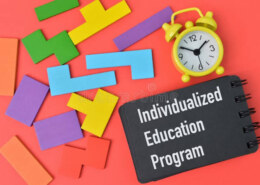Individualized learning can indeed lead to better outcomes for many students. When education is tailored to a student’s specific needs, pace, and learning style, it can enhance engagement, understanding, and retention. However, the effectiveness of individualized learning may vary depending on the context and the student’s motivation and support.
Individualized learning is an educational approach that customizes instruction to meet the unique needs, preferences, and progress of each student. It goes beyond the traditional one-size-fits-all model of education. In individualized learning:
Personalization: The curriculum and teaching methods are adapted to the individual student’s abilities, interests, and learning styles.
Pacing: Students can progress through material at their own pace, allowing those who grasp concepts quickly to move ahead and providing extra support to those who need more time.
Assessment: Continuous assessment and feedback help identify a student’s strengths and weaknesses, allowing for targeted interventions.
Resources: Different learning resources, including textbooks, digital tools, and hands-on activities, are used to cater to each student’s needs.
Goals: Individualized learning often involves setting specific, achievable goals for each student, ensuring they are challenged but not overwhelmed.
Teacher Role: Teachers act as facilitators and guides, providing support and encouragement to help students reach their goals.
Outcomes of Individualized Learning
Individualized learning can lead to various positive outcomes for students, including:
Improved Academic Performance: When instruction is tailored to individual needs, students often perform better academically as they can progress at their own pace and receive targeted support.
Increased Engagement: Personalized learning can make education more engaging and relevant to students, as it considers their interests and learning styles, leading to higher motivation and participation.
Enhanced Understanding: Customized instruction allows students to grasp concepts more thoroughly, leading to a deeper understanding of the material.
Better Retention: Students tend to remember and retain information better when they have a say in how and what they learn.
Confidence and Self-Efficacy: Individualized learning can boost students’ confidence in their abilities and increase their self-efficacy, as they experience success and progress.
Reduced Achievement Gaps: This approach can help close achievement gaps by providing extra support to students who need it and challenging those who excel.
Preparation for Lifelong Learning: Individualized learning teaches students to take control of their education and equips them with the skills to continue learning throughout their lives.
Personal Growth: It can foster personal growth and independence, encouraging students to take responsibility for their own learning.
Positive Attitude Toward Education: When students have a positive learning experience, it can lead to a more favorable attitude towards education and a lifelong love of learning.
Summary:
Individualized learning can be implemented through various strategies, such as differentiated instruction, personalized learning plans, and adaptive educational technology. It aims to maximize each student’s potential and promote deeper understanding and retention of the material. However, it’s essential to note that the effectiveness of individualized learning may vary depending on the implementation, student characteristics, and the support system in place. It’s not a one-size-fits-all solution, and careful planning and evaluation are necessary to maximize its benefits.

